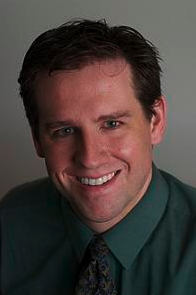Sleep training might offer some interesting health benefits.
Michael Howell, neurologist at University of Minnesota, discusses the importance of sleep training.
Dr Michael Howell is a neurologist who specializes in sleep disorders and sees patients at Fairview Riverside and Fairview Southdale. He is Program Director of the Clinical Sleep Medicine Fellowship at Hennepin County Medical Center and the University of Minnesota as well as Medical Director of the Fairview Sleep Center-Edina. His clinical interests include sleepwalking and related disorders such as REM Sleep Behavior Disorder, Sleep Related Eating Disorder, sleep seizures and other violent sleep behaviors.
Athletic Slumber

We live in culture wherein sleep, a biological imperative, is often perceived as dispensable. This trivialization of a process that evolved over billions of years, has lead to consequences ranging from breast cancer to motor vehicle accidents.
However, amongst high performance athletes there is a growing recognition that sleep training is an essential way to enhance performance.
Of course a firmly toned body is necessary, but hitting a baseball thrown at 95 miles-an-hour or scoring after a puck suddenly falls onto the back hand of a hockey stick is only the final, most visible, end product of numerous brain pathways. To succeed, professional and Olympic athletes must have high-end neurological performance, and the critical rate-limiting step is often sleep.
When training, sleep refines our 100 billion brain cells and prunes their trillions of synaptic connections. That figure skater who just landed two consecutive triple jumps in the Olympics? She developed those skills not by forcing herself out of bed in the morning but instead by sleeping in, and permitting her brain to solidify the motor pathways laid down in practice the day before.
For game day, optimizing the duration and timing of sleep helps: NFL linemen avoid penalties, NHL goalies block shots, NBA guards shoot, and PGA golfers swing.
Unfortunately for many developing athletes it’s not as easy as turning off the alarm clock. Just like everything else they do, sleep training requires discipline and practice. Internal body clocks must be recognized and aligned, sleep disorders such as sleep apnea treated, and substances such as alcohol and sleeping pills minimized or eliminated.
It is my goal that by working with this highly visible subculture, sleep becomes recognized by all of us, as one of our greatest opportunities we have to improve our own physical and mental health.
Now do yourself a favor and go take a nap.


Comments
One response to “Michael Howell, University of Minnesota – Athletic Slumber”